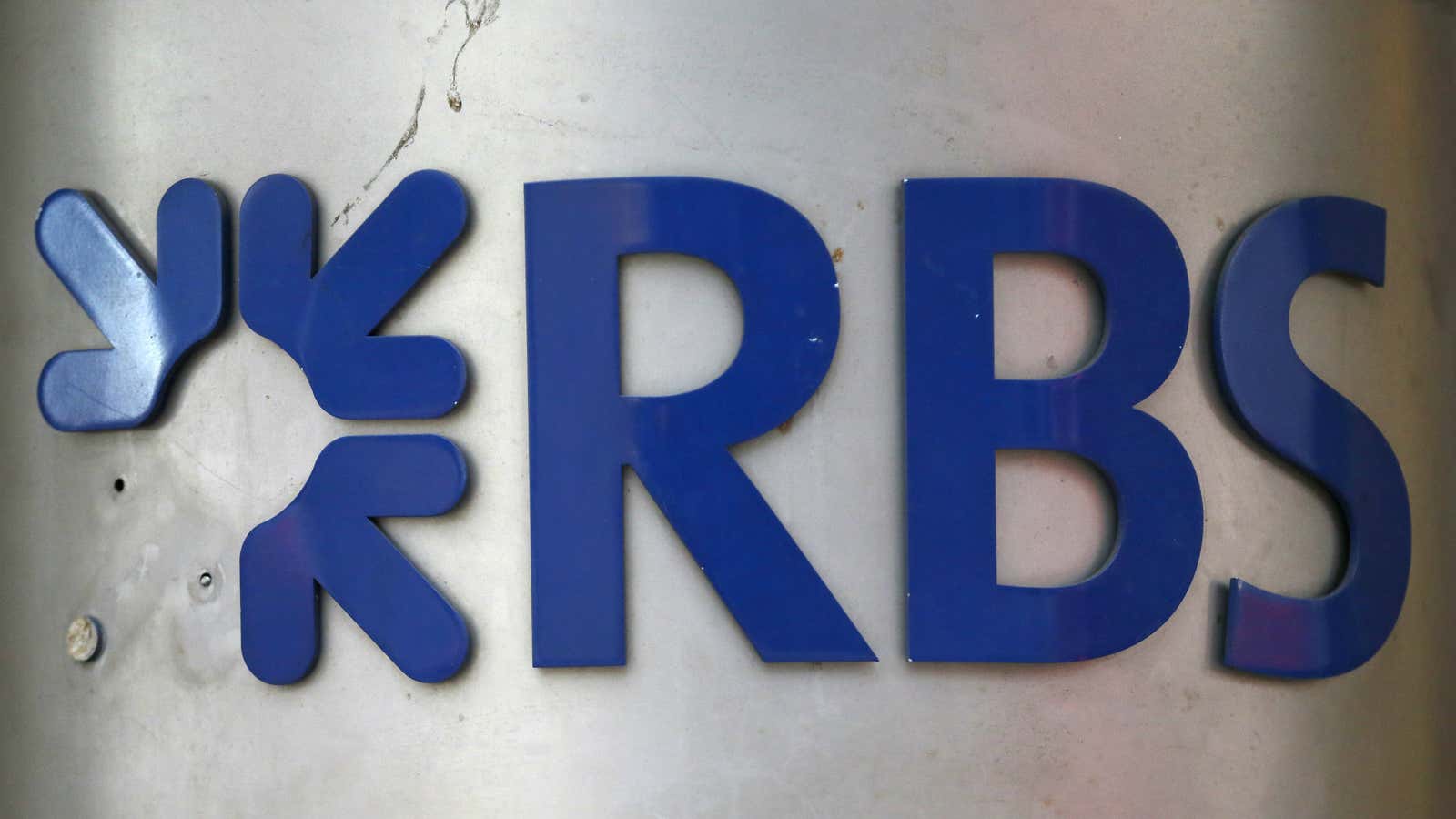Before the financial crisis, the Royal Bank of Scotland was once the world’s largest bank, measured by assets. Today, it’s not even close to the biggest bank in the UK. In 2008 and 2009, after the global financial crisis brought RBS close to the brink of collapse, the British government spent £45.5 billion ($60.9 billion) in taxpayer funds to bail it out. Now, the government’s determination to sell down its majority stake in the troubled lender is saddling the state with heavy losses.
Last night, the UK Treasury announced a plan to sell 7.7% of its stake in RBS. The deal was completed at a price of £2.71 per share, it announced today, a 3.5% discount to Monday’s closing price, raising £2.5 billion that will go towards paying down the national debt. However, it also means a loss of £2.1 billion for taxpayers, given the average price of around £5 per share paid in the three-part bailout in 2008 and 2009.
The state’s first sale of RBS shares, in 2015 (pdf), also came at a loss. Then, a 5.4% stake was sold at a price of £3.30 per share—proceeds from that sale were £1.1 billion less than what the government initially paid for the shares.
However, when the National Audit Office analyzed the economics of the 2015 sale, it suggested that the government’s breakeven price could be higher, at £6.25 per share, taking into account the costs of borrowing the money used to bail out the bank. That means the 2015 sale represented a loss of £1.9 billion and implies that this week’s sale—at a price 18% below the 2015 transaction—represents a loss of nearly £3.3 billion to taxpayers.
That said, UK Financial Investments, the department that manages the government’s crisis-era bank stakes, estimates that the net cost of the RBS stake comes to £4.40 a share once fees and dividends are considered. Even this represents a hefty loss—£1.6 billion for the latest sale.
Still, both the current chancellor, Philip Hammond, and his predecessor, George Osborne, have dismissed the losses as necessary to get RBS back into private hands. “The government should not be in the business of owning banks,” Hammond said.
The government moved ahead with this latest sale because RBS last month settled a large crisis-era fine with the US Justice Department, for $4.9 billion. Since 2012, the bank has spent about £20 billion paying for a wide variety of misdeeds. It also went for nearly a decade without making a profit, before shifting into the black last year. The government still owns 62.4% of RBS but says it intends to sell £15 billion worth of shares by 2023.
